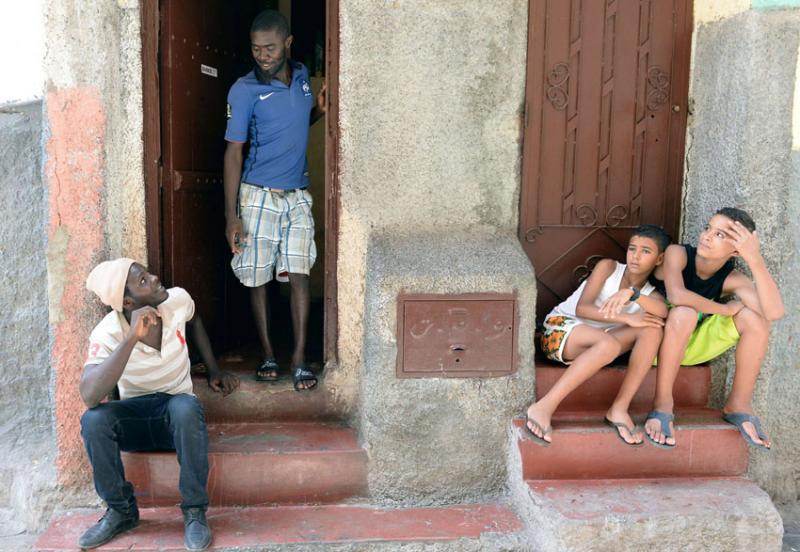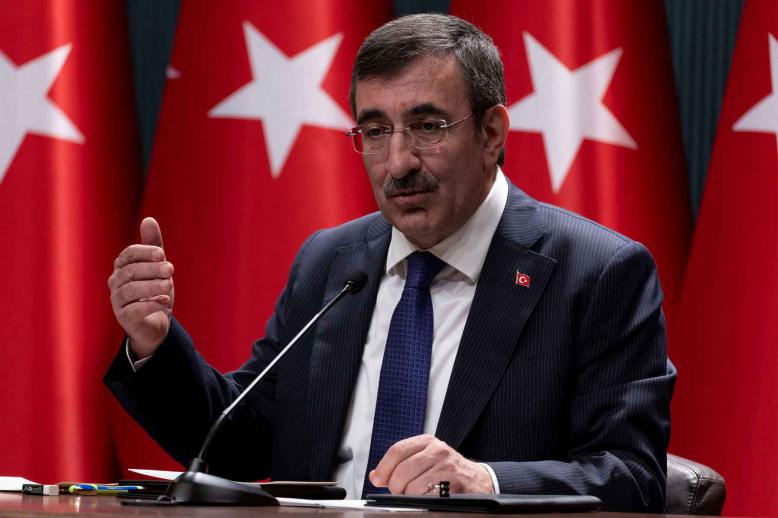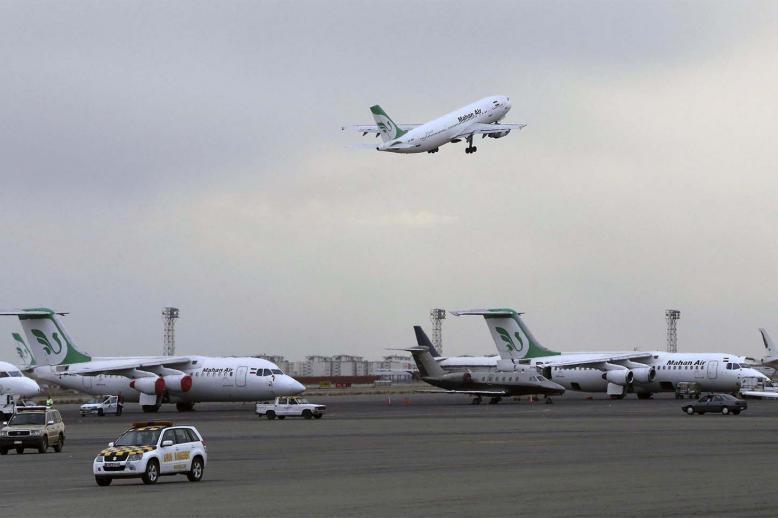Migrant labour boosts Maghreb economy, experts say
TUNIS - Governments and businesses in the Maghreb should integrate sub-Saharan migrants into the workforce and not get caught up in the populism sweeping across Europe, regional experts said.
“The integration of a foreign workforce in a country’s labour process fuels growth everywhere in the history of global economy,” said Algerian economist Ihsane el-Kadi.
He said many of the world’s developed countries host large numbers of migrants. “The specific sense of growth is to reclassify and redeploy rapidly people that benefit from such growth,” Kadi said.
Algerian political scientist Ali Hannat said political science indicates migrations are social facts born out of globalisation. “Policies by host countries and countries of migration origin have to include this as an important challenge in their strategy of governance,” he said.
During the African Union summit in Mauritania, African leaders announced a regional body to consider migration issues but dismissed an EU plan to set up “disembarkation platforms” in their region.
The African Observatory for Migration and Development will have headquarters in Rabat, Morocco, which spearheaded the project to “harmonise national strategies of African states and improving interaction with partners.”
Maghreb countries have not laid the groundwork for a comprehensive approach to migration and many migrants are victims of prejudice and abuse.
Algeria has faced accusations of failing to respect migrants’ rights. Human rights groups said the government has deported migrants, sometimes abandoning them in the desert without food or water.
Algerian officials denied the accusations and warned against a “genuine plot targeting Algeria’s security and stability.” They said there was an “invisible hand” pushing mass migration waves towards Algeria with the “aim of draining… its financial capabilities, humanitarian impulses and security power.”
In Tunisia, Libya and Morocco migrants often work at state-funded construction sites, a trend that economists said was likely to grow.
Kadi said the trend mirrored France’s experience with migration from 1945-75 when industries such as the construction sector relied heavily on workers from the Maghreb.
They argue that migrants from the Sahel-Sahara region will first seek jobs in the Maghreb, even if they plan to eventually move to Europe.
“The majority of the sub-Saharan migrants piled up on trucks to be deported 2,300km south are workers seeking employment,” said Kadi referring to migrants deported by Algeria.
Algerian officials say authorities have sent 36,000 illegal migrants from the Sahel region, most from Niger, to their home countries since 2014 but rights activists say the number is higher.
Migrant workers have played a considerable part in developing infrastructure projects in Algeria, which the government has invested some $400 billion in since 1999.
“The Great Mosque of Algiers, the new city of Sidi Abdellah, the expansion of Algiers’ underground train network are among the biggest projects where the contribution of migrant workers from the Sahel is crucial for progress or achievement,” said Kadi. “These workers are illegally employed.”
“Why is the government of a country whose economic sectors… are increasingly dependent on the workforce of migrants so hostile towards these migrants?” asked Kadi, referring to Algeria.
Migrant workers from the Sahel often work without permits in other Maghreb countries as well, including in Tunisia.
When asked about the state of migrant workers in the country, a Tunisian government minister said: “These are students who seek to make extra money or tourists overstaying their visas.”
Experts say migrants from the Sahel are looking for employment in the Maghreb due to the disparity in growth and revenue opportunities.
“The issue is not to recognise the fact that the flow of migrants moves from poor countries to more rich countries,” Kadi said. “The real issue is to see in such flow an economic and social opportunity and change the status of the country into a host country for migrants.
“Such change will turn a stagnant and closed country into a new country that is dynamic and open.”
Morocco has become a host country for large numbers of migrants as it attempts to gain support in Africa for its position on the disputed Western Sahara.
Rabat launched reforms in 2014, largely funded by the European Union, to encourage migrants to stay in Morocco rather than attempt the crossing to Europe.
In 2015, more than 16,000 migrants were granted year-long renewable residency permits. By 2016, King Mohammed VI said the country had “an authentic solidarity policy to welcome sub-Saharan migrants, which protects their rights and preserves their dignity,” a policy praised by the European Union.
TUNIS - Governments and businesses in the Maghreb should integrate sub-Saharan migrants into the workforce and not get caught up in the populism sweeping across Europe, regional experts said.
“The integration of a foreign workforce in a country’s labour process fuels growth everywhere in the history of global economy,” said Algerian economist Ihsane el-Kadi.
He said many of the world’s developed countries host large numbers of migrants. “The specific sense of growth is to reclassify and redeploy rapidly people that benefit from such growth,” Kadi said.
Algerian political scientist Ali Hannat said political science indicates migrations are social facts born out of globalisation. “Policies by host countries and countries of migration origin have to include this as an important challenge in their strategy of governance,” he said.
During the African Union summit in Mauritania, African leaders announced a regional body to consider migration issues but dismissed an EU plan to set up “disembarkation platforms” in their region.
The African Observatory for Migration and Development will have headquarters in Rabat, Morocco, which spearheaded the project to “harmonise national strategies of African states and improving interaction with partners.”
Maghreb countries have not laid the groundwork for a comprehensive approach to migration and many migrants are victims of prejudice and abuse.
Algeria has faced accusations of failing to respect migrants’ rights. Human rights groups said the government has deported migrants, sometimes abandoning them in the desert without food or water.
Algerian officials denied the accusations and warned against a “genuine plot targeting Algeria’s security and stability.” They said there was an “invisible hand” pushing mass migration waves towards Algeria with the “aim of draining… its financial capabilities, humanitarian impulses and security power.”
In Tunisia, Libya and Morocco migrants often work at state-funded construction sites, a trend that economists said was likely to grow.
Kadi said the trend mirrored France’s experience with migration from 1945-75 when industries such as the construction sector relied heavily on workers from the Maghreb.
They argue that migrants from the Sahel-Sahara region will first seek jobs in the Maghreb, even if they plan to eventually move to Europe.
“The majority of the sub-Saharan migrants piled up on trucks to be deported 2,300km south are workers seeking employment,” said Kadi referring to migrants deported by Algeria.
Algerian officials say authorities have sent 36,000 illegal migrants from the Sahel region, most from Niger, to their home countries since 2014 but rights activists say the number is higher.
Migrant workers have played a considerable part in developing infrastructure projects in Algeria, which the government has invested some $400 billion in since 1999.
“The Great Mosque of Algiers, the new city of Sidi Abdellah, the expansion of Algiers’ underground train network are among the biggest projects where the contribution of migrant workers from the Sahel is crucial for progress or achievement,” said Kadi. “These workers are illegally employed.”
“Why is the government of a country whose economic sectors… are increasingly dependent on the workforce of migrants so hostile towards these migrants?” asked Kadi, referring to Algeria.
Migrant workers from the Sahel often work without permits in other Maghreb countries as well, including in Tunisia.
When asked about the state of migrant workers in the country, a Tunisian government minister said: “These are students who seek to make extra money or tourists overstaying their visas.”
Experts say migrants from the Sahel are looking for employment in the Maghreb due to the disparity in growth and revenue opportunities.
“The issue is not to recognise the fact that the flow of migrants moves from poor countries to more rich countries,” Kadi said. “The real issue is to see in such flow an economic and social opportunity and change the status of the country into a host country for migrants.
“Such change will turn a stagnant and closed country into a new country that is dynamic and open.”
Morocco has become a host country for large numbers of migrants as it attempts to gain support in Africa for its position on the disputed Western Sahara.
Rabat launched reforms in 2014, largely funded by the European Union, to encourage migrants to stay in Morocco rather than attempt the crossing to Europe.
In 2015, more than 16,000 migrants were granted year-long renewable residency permits. By 2016, King Mohammed VI said the country had “an authentic solidarity policy to welcome sub-Saharan migrants, which protects their rights and preserves their dignity,” a policy praised by the European Union.
Lamine Ghanmi is a veteran Reuters journalist. He has covered North Africa for decades and is based in Tunis.
This article was originally published in The Arab Weekly.







